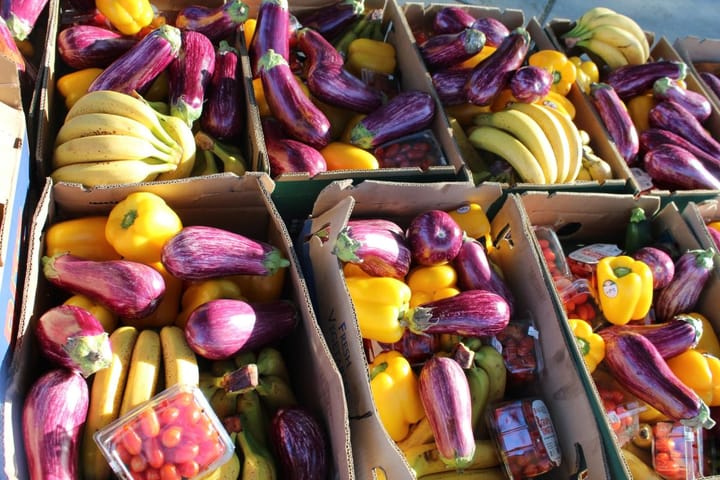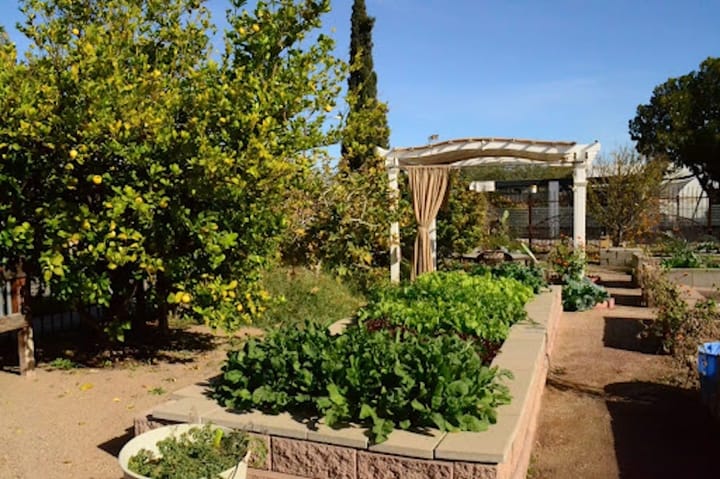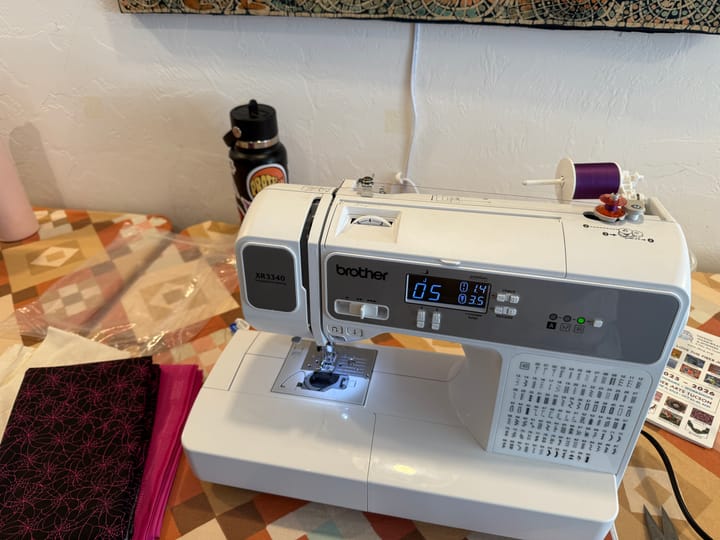Tucson vigil honors detainees, condemns ICE conditions
Tucson activists and faith leaders held a vigil outside the ICE Field Office to honor detainees who have died or faced harsh conditions, calling for justice, dignity and community support.
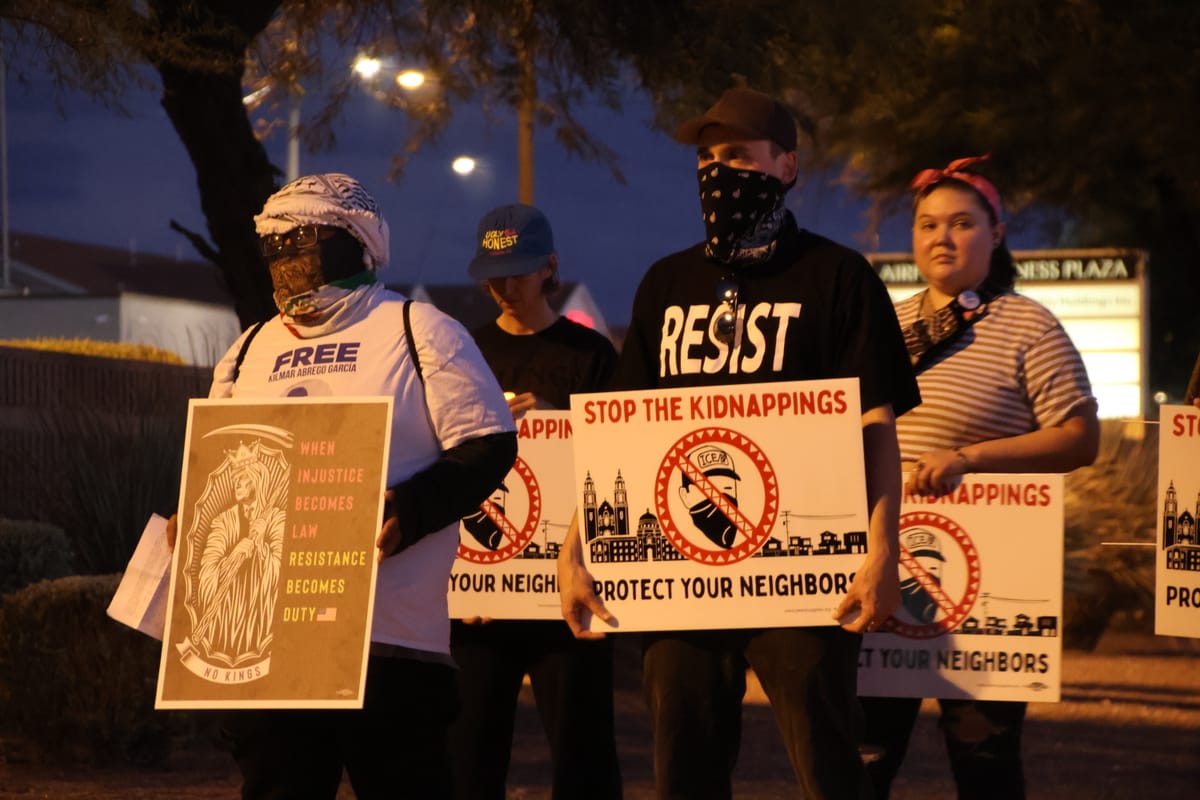
Allegations of medical neglect, overcrowding and abuse in U.S. immigration detention centers are fueling calls from Tucson activists and faith leaders for justice, accountability and compassion.
That call for accountability took center stage at a vigil outside Tucson’s ICE Field Office last Friday, where activists, faith leaders and residents shared prayers, poems and personal stories of how immigration enforcement has shaped their lives.
The gathering, organized by Coalición de Derechos Humanos, Desert Rising Tucson and Mobilize Tucson, came in response to two detainee deaths within two weeks at facilities in Florence and Mesa.
Illuminated by candles and surrounded by flowers and protest signs, participants remembered those who have died in custody and demanded humane treatment for those still detained.
“We (want) to remember the situations and the injustices that have happened all over the country,” said Desert Rising spokeswoman Megan Martin. “Everyone is a human and deserves the respect of a human being.”
The event included a program of prayer, meditation and firsthand accounts of how community members have been impacted by immigration enforcement actions.
“Migrants are so overwhelmed with what's going on right now,” said Maru Carrasco, a member of Derechos Humanos and Tucson Rapid Response. “Arizona has always been suffering from (immigration enforcement) laws, and we are always struggling (in) trying to protect our communities.”
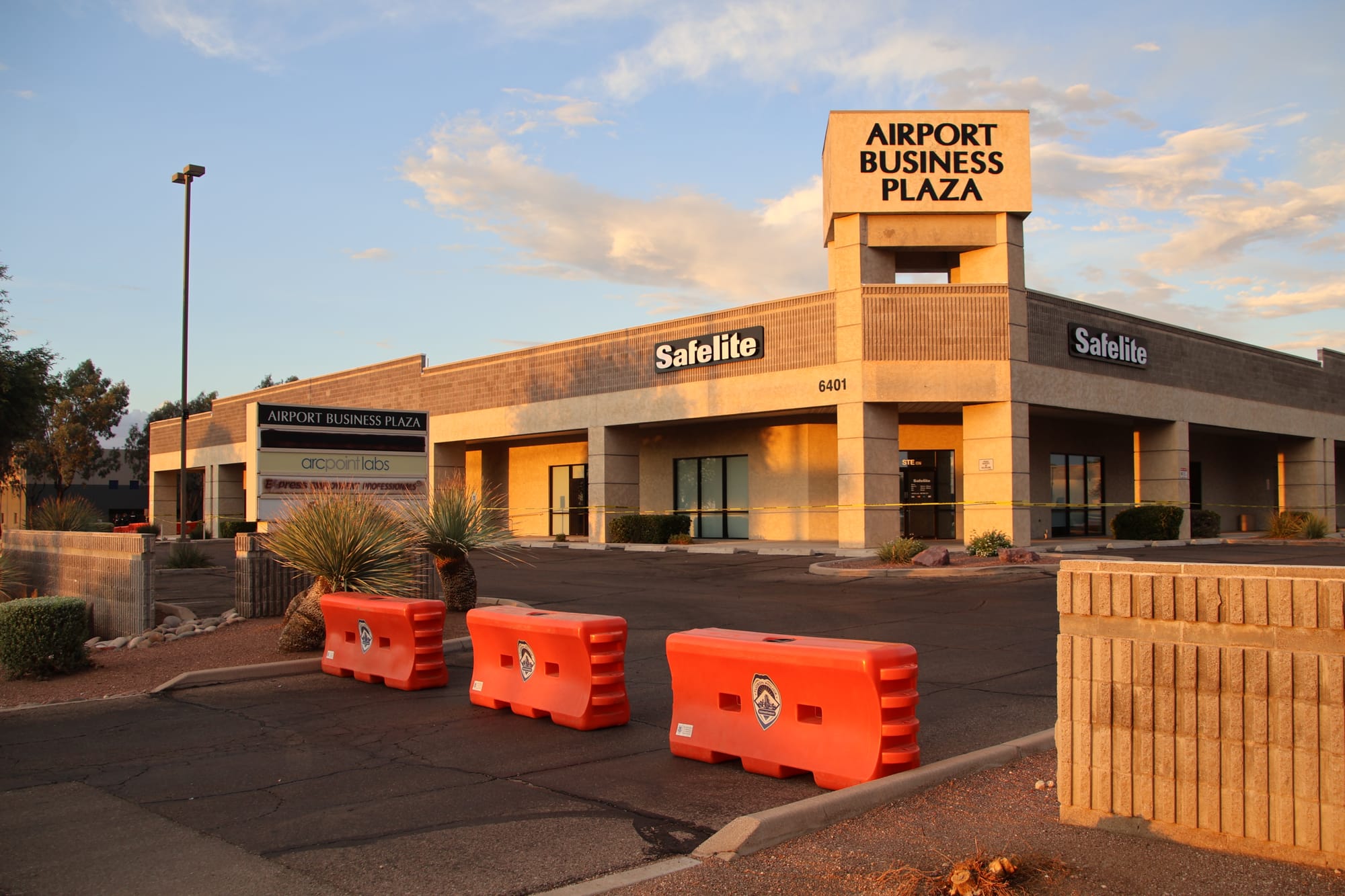
Before the event’s start, Tucson police barricaded and taped off the Airport Business Plaza, where the Immigration and Customs Enforcement Field Office is located. More than a dozen officers were present, along with two Sun Tran buses, and armed police officers stationed on the roof of the plaza.
Illuminated by candles and surrounded by flowers and protest signs, the vigil opened with a reading from a poem written by Catalina “Xochitl” Santiago, a DACA recipient and Texan community organizer currently held in ICE detention in El Paso. The poem recounts Santiago’s firsthand accounts from custody.
“The lights are on day and night ... you ask for permission to use the bathroom and bathe yourself,” the poem said. “There are two pregnant women who have not received appropriate nourishment ... and the nurses will only offer the water. And the water here stinks and yet we still drink it.”
Reports of conditions like these are not uncommon.
The Kino Border Initiative surveyed more than 250 people at a holding facility in Nogales, Sonora, about their experiences during the deportation process. Multiple respondents reported inadequate conditions, such as overcrowding, medical neglect and exposure to toxic smoke.
In response to these and other reports, community members and faith leaders have mobilized to provide support and advocacy for those affected.
Maggie Smith, a Jewish chaplaincy intern and a member of Jewish Voices for Peace, is part of the Good Neighbor Interfaith Coalition, a committee created by Derechos Humanos to offer spiritual care for members of the immigrant community impacted by ICE detentions.
“That which you hate, do not do to your neighbor,” she said, quoting Rabbi Hillel the Elder before breaking into a Jewish song about peace.
Bennett Burke, a clergy member and part of the Democracy Unites Us executive committee, recited a prayer in both English and Spanish, calling for justice for marginalized communities and urging community members to unite in pursuing that justice.
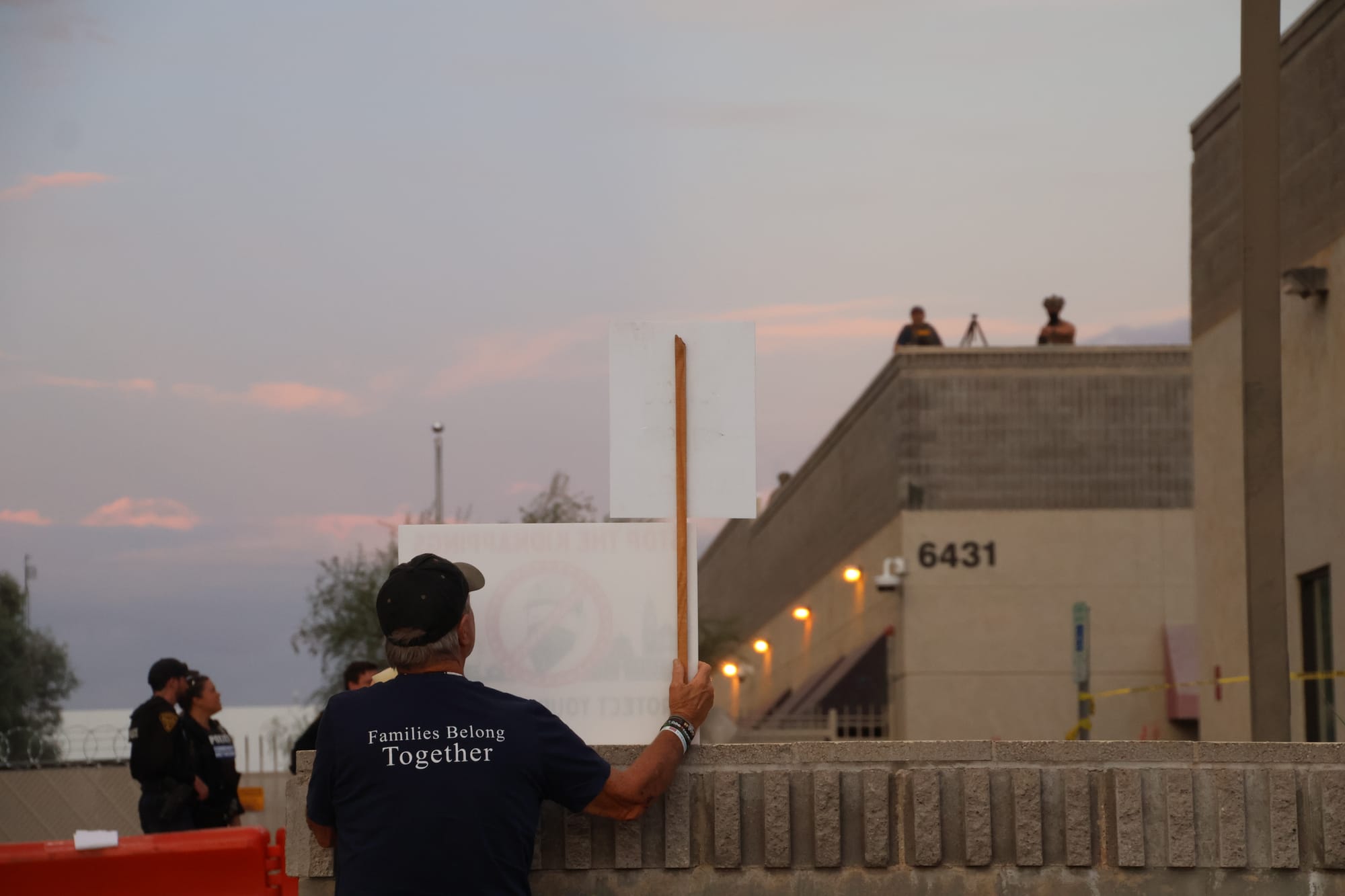
Rev. Kelli Knight, pastor at Catalina United Methodist Church, attended the vigil alongside members of her congregation.
“I do have a parishioner who is an immigrant whose apartment complex has been raided on multiple occasions by ICE, living in constant fear that them, and their family, would get deported,” Knight said. “It's just appalling what's been happening in our community.”
Attendees also took time to speak about how they’ve been personally impacted by ICE interventions. Christopher, a member of the Party for Socialism and Liberation, spoke about his mother’s anxieties in doing everyday errands.
“My mother shouldn't have to be scared of doing the simple things an everyday citizen does: paying for her bills, getting her groceries, medicines, appointments,” Christopher said. “She waited 21 years to get the (legal) progress started ... up until after her immigration lawyer (broke) the news to her that ICE agents are always going to be posted outside of the courts.”
One attendee expressed gratitude for having a safe space to share their grief.
“The people that are impacted by ICE are a part of my community,” said the person, who asked to remain anonymous. “I work with children who are in detention. I talk with my friend in ICE detention multiple times a week, and it's horrifying to hear about what she's going through.”
The Kino Border Initiative’s survey found that 44.4% of detainees currently in the deportation process had lived in the U.S. for more than a decade, with 39.2% reporting emotional and caregiving hardships while separated from family members.
“We remain in solidarity with all who fight for justice,” said Tucson Rapid Response’s Carrasco, “and we will continue to dedicate our energy wherever is most needed in supporting and amplifying the voices of migrants and their families.”
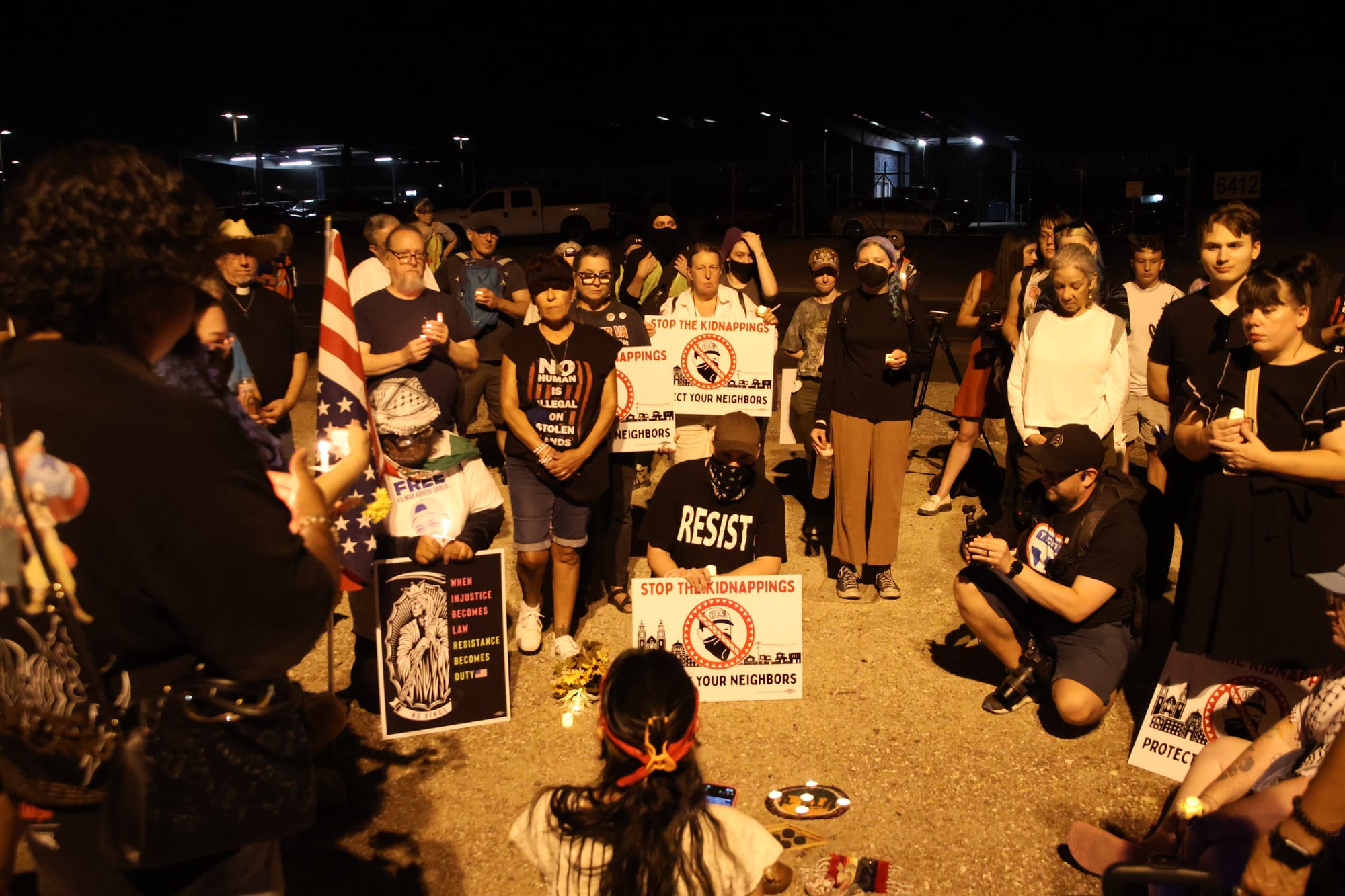
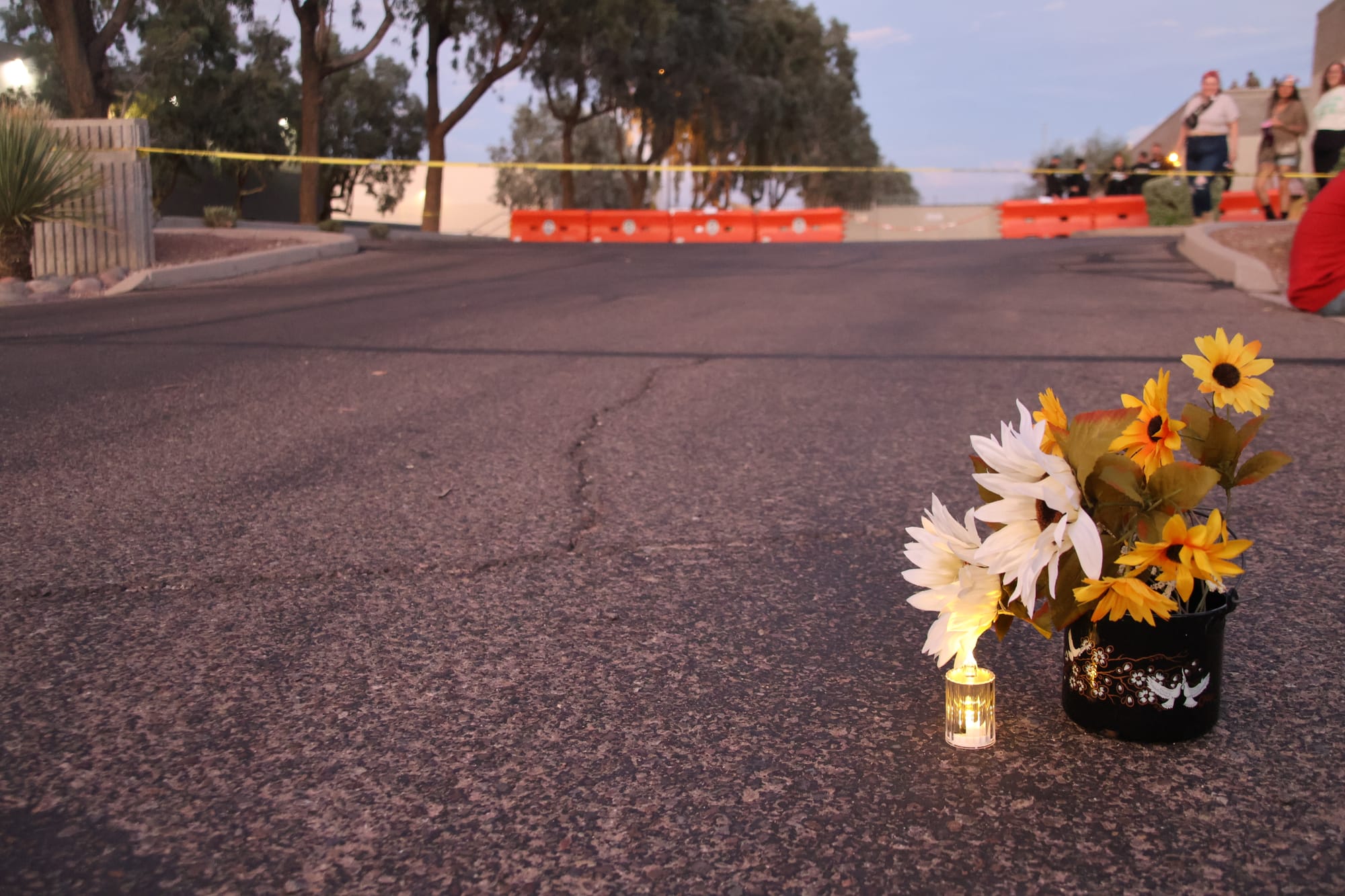
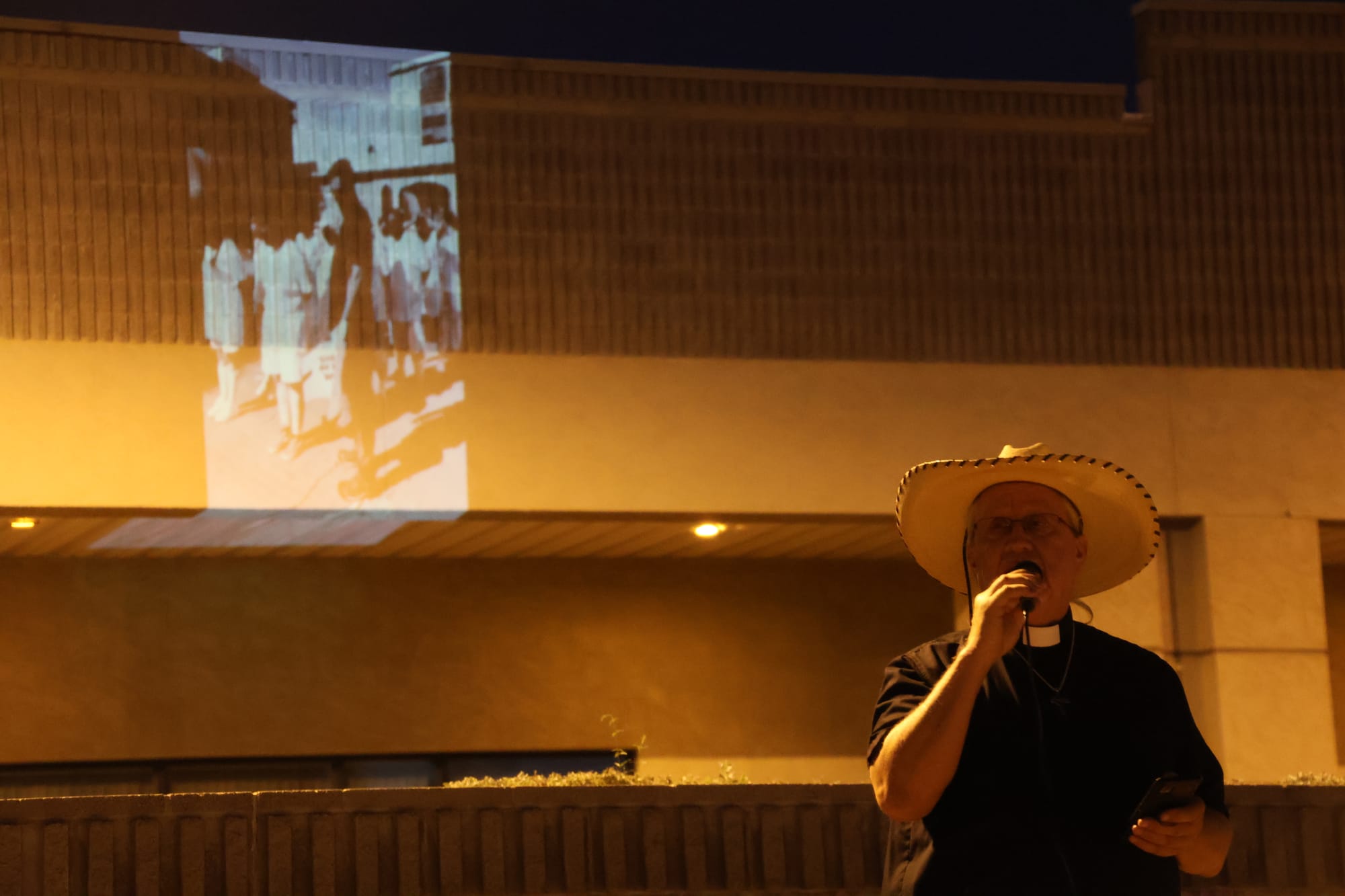
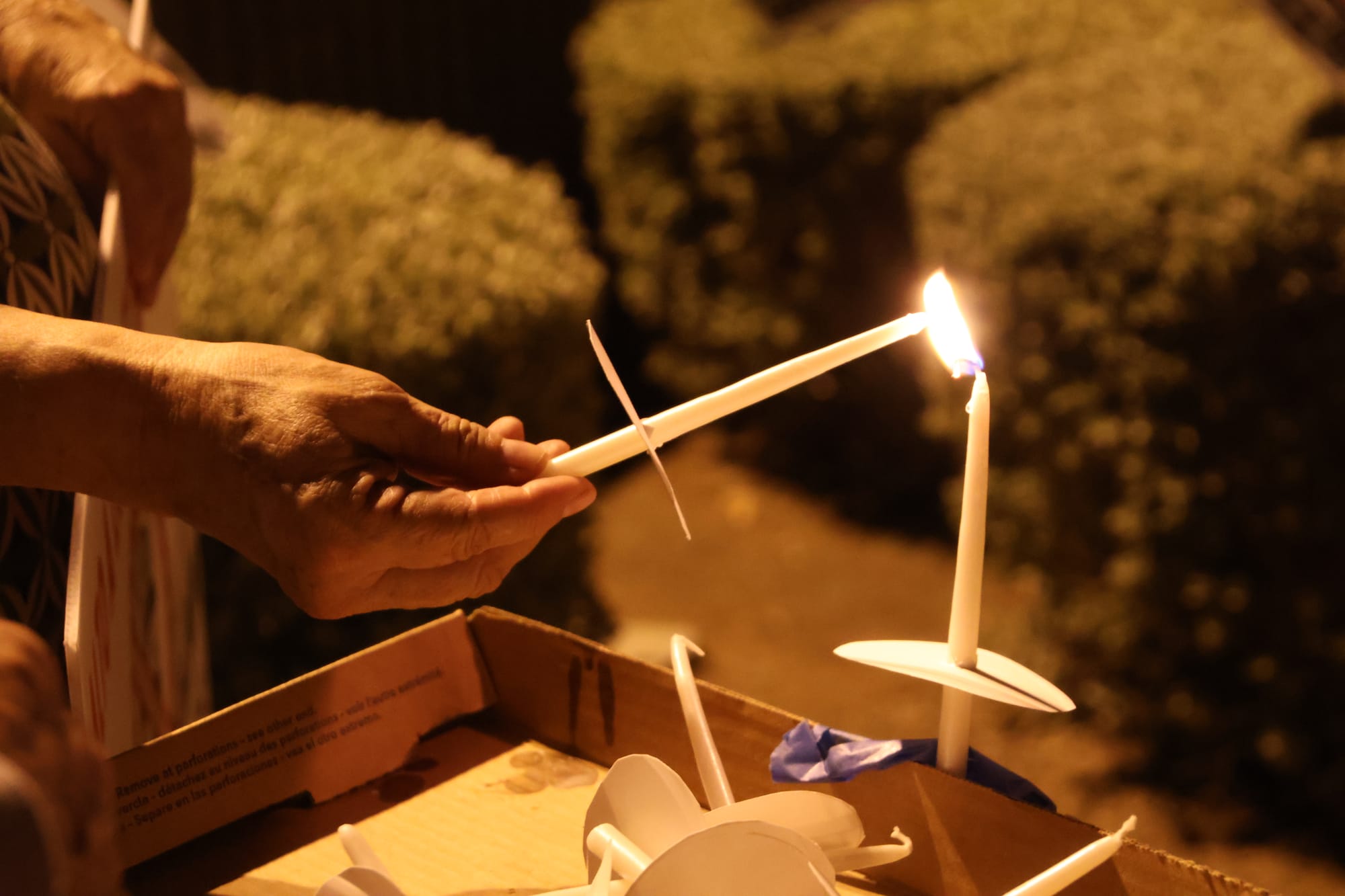
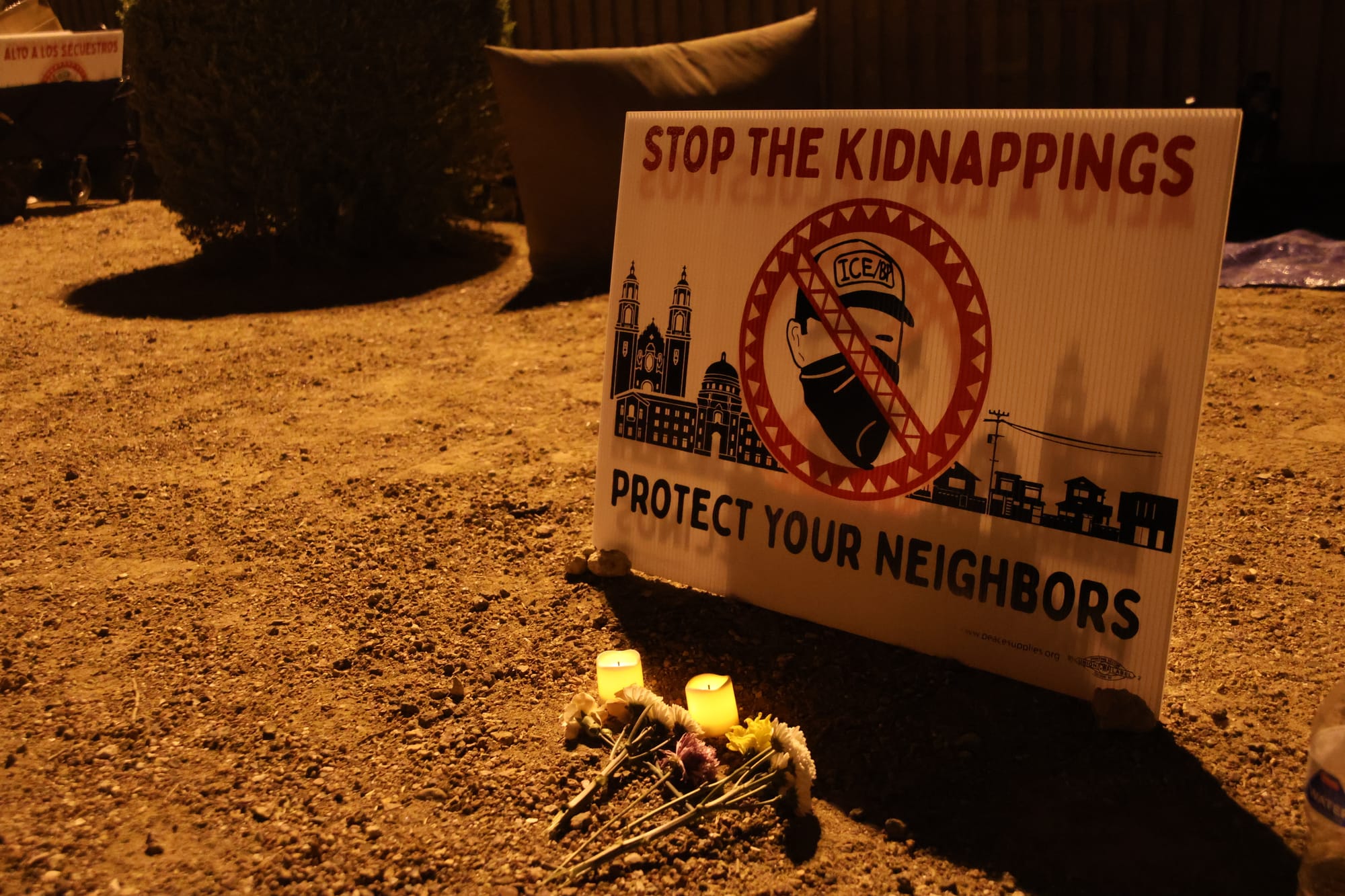
Photos by Topacio "Topaz" Servellon.
Topacio “Topaz” Servellon is a freelance journalist based in Tucson. Contact them at topacioserve@gmail.com.
Tucson Spotlight is a community-based newsroom that provides paid opportunities for students and rising journalists in Southern Arizona. Please consider supporting our work with a tax-deductible donation.

